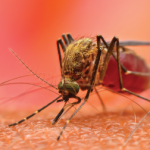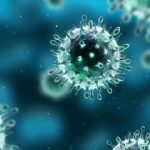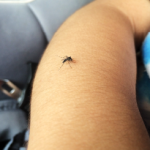NEW YORK (Reuters Health)—A new chikungunya virus-like-particle vaccine appears to be safe and immunogenic, according to results from a phase 2 trial.
“The phase 2 safety, tolerability and immunogenicity were similar to the data seen in an earlier phase 1 study,” Grace L. Chen, MD, of the National Institutes of Health Vaccine Research Center, Bethesda, Md., tells Reuters Health by email. “However, we found the durability of immunogenicity interesting, as it suggests the vaccine regimen used in the trial may be able to induce an immune response for a longer term than previously known.”
Chikungunya virus (CHIKV) is a mosquito-borne virus that causes a febrile illness with arthralgia, polyarthritis and rashes. There are no licensed vaccines or therapies currently.
Dr. Chen and colleagues developed the virus-like-particle vaccine VRC-CHIKVLP059-00-VP (CHIKV VLP) and assessed its safety, tolerability and immunogenicity at six endemic chikungunya virus sites in the Caribbean.
At least one local symptom (pain or tenderness, swelling or redness) was reported by 32% (64/201) of the vaccine group and by 19% (37/199) of the placebo group, with symptoms most often rated as mild and occasionally as moderate in severity.
There were no significant differences in systemic reactogenicity between the vaccine and placebo recipients, the researchers report in JAMA.1
The vaccine was highly immunogenic in the CHIKV focus reduction neutralization test, eliciting positive responses in all but one of the 192 participants who had received both of the planned vaccinations (on days 0 and 28).
The geometric mean titer (GMT) increased from 46.9 at baseline to 2004.5 at Week 8 in the vaccine group but remained virtually unchanged in the placebo group.
The immune response persisted throughout the 72-week study, with 88% of the participants in the vaccine group who were seronegative at baseline maintaining at least a four-fold increase from baseline neutralization titers and 99% were seropositive according to the CHIKV luciferase neutralization assay.
Although the trial was designed to exclude participants who were CHIKV seropositive before enrollment, 78 of 168 trial participants at two sites were retrospectively found to be seropositive on the day of study enrollment. The vaccine proved immunogenic in these participants as well, inducing a two-fold increase in neutralizing antibody after the second vaccination.
“The main message from the study is that this vaccine was safe, well tolerated, and led to a robust immune response in these areas where CHIKV had circulated,” Dr. Chen says.
“FDA approval pathways for vaccines could provide a path to licensure through either traditional efficacy or accelerated approval pathways,” she adds. “Traditional efficacy trials are difficult to conduct for emerging infections that are tough to predict, and when a robust immune response is demonstrated, the accelerated approval pathway could be an option for bringing the vaccine to market more efficiently.”


